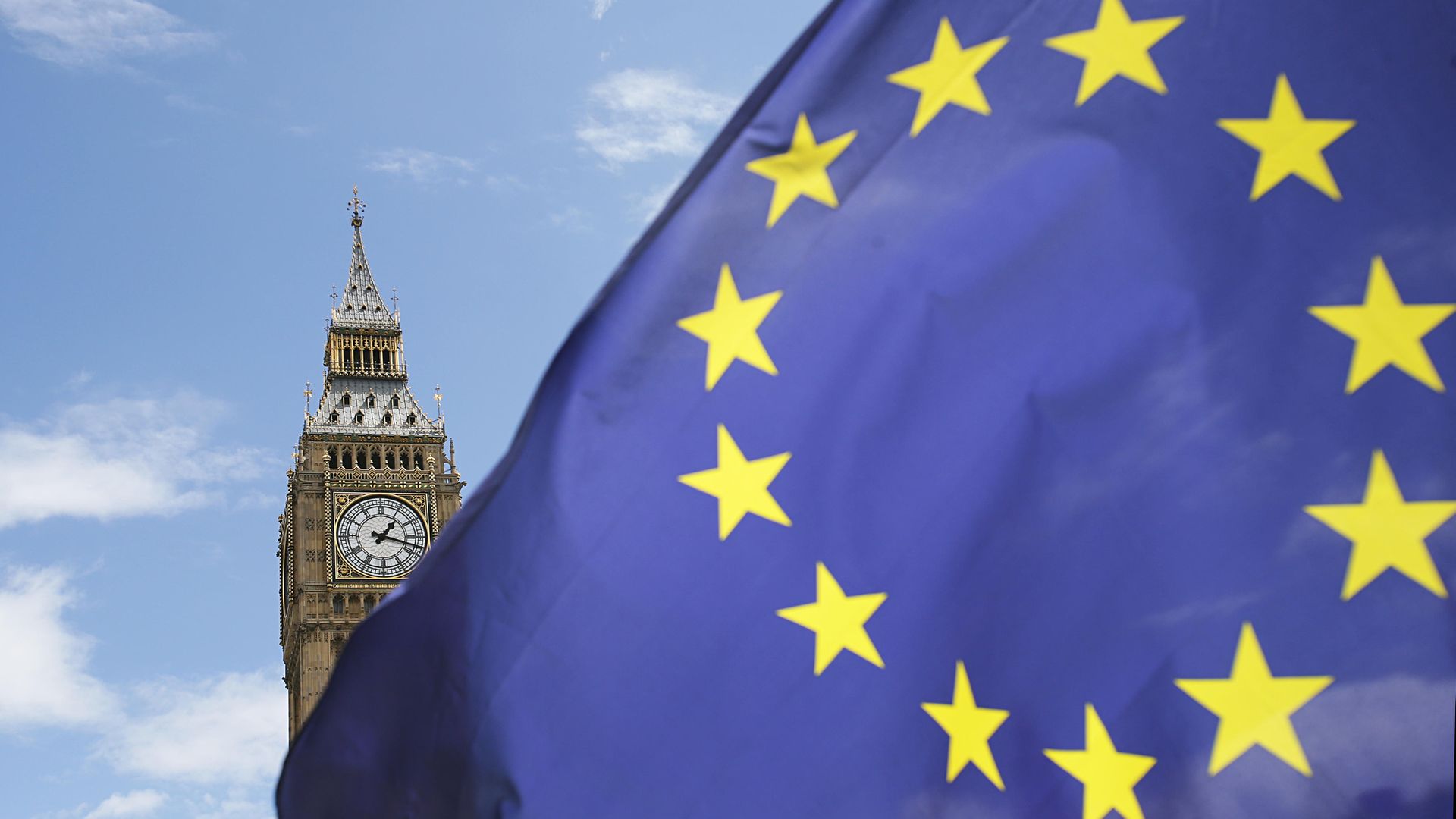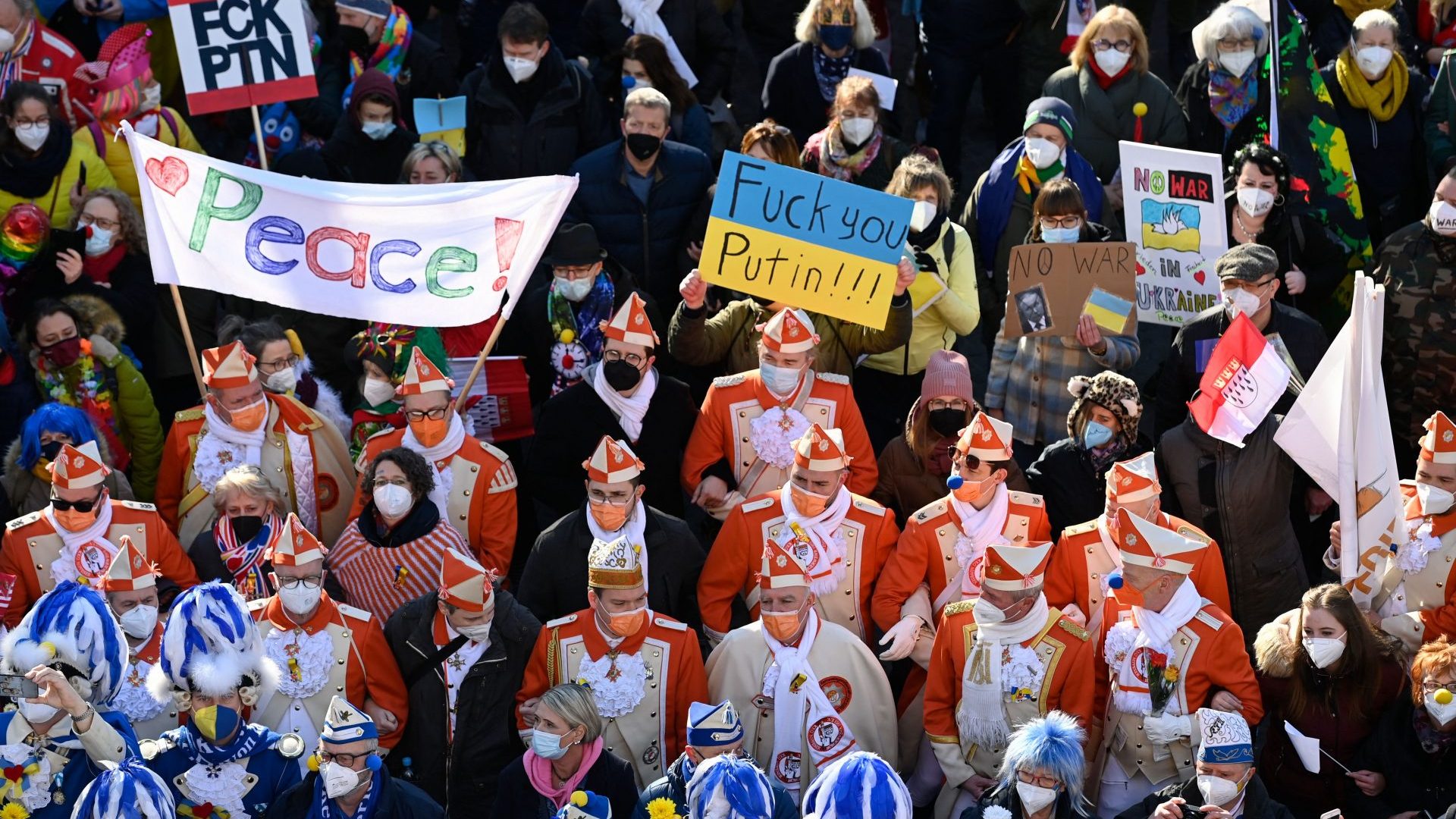Jonty Bloom is right to say that now is not the time for a campaign to rejoin the EU (“Keir Starmer and the T-Rex in the room”, TNE #282). But I think his article may be just a little too pessimistic.
Though a formal “progressive alliance” remains unlikely, I have a sense that many more voters than usual, come a general election, are likely to vote for whatever candidate seems to have the best chance of defeating the Tories. And if, as seems quite likely, the outcome is a hung parliament and a Starmer minority government or even coalition, won’t the Lib Dems, Greens and others insist on the PR already favoured by a majority of Labour members?
The “radical wing” of the Tory party certainly looks very powerful now. But can we rule out absolutely a split – especially under PR – replaying the Peel/Disraeli one that kept the Liberals in power for much of the mid-19th century? And may not the awful war in Ukraine result in some change in Britain of how Europe and the EU are seen?
Ian Bullock
A lot of people haven’t accepted that we can’t just rejoin. The damage that has been done to our international reputation following the signing of the Brexit deal and our government’s actions in trying to break it before the ink was dry means there are few allies in the EU wanting us back.
Can you really imagine the French wanting us to rejoin? The UK leaving has benefitted France massively.
I can’t see any benefits from the hard Brexit Johnson has delivered. I think Starmer is simply being a politician and spinning the language – we can all see that Brexit is failing, and what he is offering is something not quite as bad rather than a “benefit of Brexit” as such.
Jack Millard
Via Facebook
To develop a new relationship with the EU is all that anyone wants. Nobody voted for the disastrous shambles left by Messrs Johnson and Frost, and nobody voted to be excluded from the single market or the customs union.
I don’t like Keir Starmer, his policies or his leadership methods, but he’s right in the way that we must face forwards. The more progress we make in this argument, the more xenophobic, nostalgic, reactionary and uninformed the Leave campaigners are shown to be.
Matthew Scott
Via Facebook
I would be happy with a solid Labour commitment to an independent post-Brexit inquiry in 2030, which genuinely assesses the outcomes vs expectations of departing the EU. Surely leavers would support this commitment, since all the great success will be highlighted by it.
Owen Southwood
Via Facebook
I profoundly disagree with Jonty Bloom’s assessment.
We know what a mess has been made, and will continue to be made, of the pragmatics of Brexit. The way round this is not to opt for the status quo and offer to clear up the current Tory mess, but to openly take on board the fact that more voters than not now understand that Brexit was a mistake and clearly set out short-, medium- and long-term plans for discussing with our European friends how we can move forward towards rectifying that mistake.
The importance of this approach is made all the more urgent in a time of increasing insecurity in Europe when strength lies in bloc membership not only via the defence grouping of Nato but also on the economic and political fronts as well. I for one will not be voting for any party in the foreseeable future that does not put a clear commitment to EU renegotiations up front in its manifesto.
Martin Richardson
Fenstanton
To reuse the tortured analogy of the article, the T-Rex is now Russia and the way for western democracies to survive against it, is through maximum cooperation. That renders all the central tenets of Brexit as irrelevant.
David England
Via Facebook
The Brexiter movement has been looking for Brexit dividends, advantages or even any lack of disaster since 2016. There are many, many Brexiters and they are bankrolled heavily – so with all that firepower if there were any benefits they would have been found by now. We might as well suppose that Starmer is about to find the Loch Ness monster.
Peter Jordan-Turner
Via Facebook
Vlad all over
Re: “How Putin ends” (TNE #282). It’s now obvious the strategy of the west is to put pressure on the oligarchs to solve the problem. They have the means, money and resources to make it happen.
The West has effectively put a price on the head of Putin. It’s a simple choice really – the wealth of the oligarchs or the “retirement” of Putin.
Ritchie Nicoll
Via Facebook
We can thank Stalin for some of Ukraine’s feeling of independence. When the UN was founded in 1945, he wanted to maximise his votes; besides Hungary and Czechoslovakia, he had Ukraine and Belarus accepted as member states. Among other things, Stalin’s five votes secured the partition of Palestine.
Philip Stewart
Oxford
Lionel Barber (“This time the west has failed to blink”, TNE #282) lists as days that will live in infamy “the Nazi invasion of Czechoslovakia in 1938, the Japanese assault on Pearl Harbor in 1941, and Soviet tanks crushing the anti-communist uprising in Hungary in 1956”. In terms of scale, the suppressing of people’s homelands by brute force can hardly compare to an attack launched without prior declaration on naval and air forces in a remote imperial possession (acquired by brute force).
A surprise attack when a state of war does not exist would sometimes be dubbed a “Copenhagen”: Horatio Nelson’s attack on the neutral Danish fleet in its home port is widely considered quite super-heroic. By similar standards of Anglo-Saxon exceptionalism, George Washington having to surrender Fort Necessity is often presented as tragic, even though he escaped intact.
Barber might have done better to cite the Japanese sack of Nanking in 1937, but the racial and national identity of the perpetrators or victims of geopolitical crimes has a lot of bearing on how well they’re remembered, if at all.
Bryn Hughes
Wrexham
German bite
Germany’s new position on Ukraine (“Shaking off the shame of the past”, TNE #282) is not taken because it is “popular with voters” but because it represents and summarises decades of discussion and of searching for a role in the world that is not a continuation of our past but a hopefully more positive part.
The German defence budget has roughly doubled over the last 10 years. It certainly has not been used to maximum effect. Some of the procurement contracts are so obviously inept that they need investigating. The idea of throwing £82bn at the military to sort out mismanagement is not very attractive.
It is particularly unattractive considering that only recently £50bn could not be found to finance the Energiewende – the abandoning of coal and nuclear power. And that’s despite the fact that the west buying oil and gas from Russia has pretty much financed their rebuild of the military these last 20 years, and despite the fact that this despondency gives leverage to the Putins of this world. And despite the fact that climate change remains the largest long-term challenge to mankind.
One last thing about “Germany trying to buy its way out of responsibility”: Germany has disproportionately borne the brunt of the consequences of wars waged by countries with a stronger concentration on their armies. I am quite sure it will be similar again this time. The UK does not seem to be ready to support refugees. At least not outside fruit-picking season.
Mathias Scherer
Via Facebook
The irony here, of course, is that postwar Germany has been a major innovator and exporter of military technology. But then I guess selling weapons was not quite the same as wielding them yourself.
Of course, Germany is not alone in reducing its military capabilities in recent years. It was only last year that Johnson mocked Tobias Ellwood for suggesting that we might not be able to defend ourselves against Russia with drones and cyber alone.
Michael Brown
Via Facebook
Not all men?
I enjoy Bonnie Greer’s articles and insights but I was disappointed to see her using the war in Ukraine to springboard into a wider statement on masculinity (“Mad, bad men”, TNE #282).
I view myself as a feminist and I very much dislike Trump and Putin. However, I was saddened to hear that Bonnie views masculinity as a negative. It’s a sad state of affairs when we class Trump’s awful comments on women and Putin’s love of riding a horse topless as signs of masculinity and examples of masculinity being inherently evil.
I embrace my masculinity. I love beer and football. But I also stand for progressive values, support feminism and embrace tolerance.
Putin is bad. Trump is bad. But this isn’t because of their masculinity, it’s because they are bad people.
Sam Bay
Fair game
James Ball (“Time running out to fix democracy”, TNE #281) is right that proportional representation will not be the answer to all our prayers about saving our democracy, but it is a necessary first step in protecting what we have and taking the vital first steps to address the other very significant matters he rightly raises.
Yes, a fair voting system would likely result in coalitions but he might have noticed that first past the post has also delivered coalitions and is likely to do so in the future. We have to learn to live with coalitions, and work out protocols for good, acceptable practice. Yes, there is the possibility of right wing groupings taking some seats in parliament. Not my preference of course. And looking at the experience across Europe, where most countries have PR (in fact it is only us and Belarus that don’t – has James noticed that?) most have not become ultraright administrations. Does he really want a government with only 44% of the total of votes but 55% of the seats in parliament, which we have seen undermining our democracy in many disparate and dangerous ways?
And yes, we need some agreement, informal if needs be, to deliver an anti-Johnson government, but that is only likely to be possible on the basis of a commitment to deliver a fair voting system.
Vicky Seddon
Amazing Stace
I am surprised that Alastair Campbell has not heard of Stacey Kent before (Diary, TNE #281). She is a long-established singer of international standing and, as Alastair says, she has the most beautiful voice. Her voice, when accompanied by her husband on the saxophone is truly amazing.
I first heard her at the cinema in the 1995 production of Richard III. The film is set in 1930s Britain and stars Ian McKellen and Annette Bening. I thoroughly recommend it.
Stacey Kent sings in the opening scenes. The lyrics are from a Christopher Marlowe poem cleverly set to music. The setting is the ballroom in what is now the hotel at St Pancras Station. Michael Blachford Hitchin, Herts
Capital fellow
Re: Peter Trudgill’s article on silent letters in words (“Silent Witnesses to Pomposity”, TNE #281), I offer this from PG Wodehouse:
“Sir Jasper Finch-Farrowmere?” said Wilfred. “ffinch-ffarrowmere,” corrected the visitor, his sensitive ear detecting the capitals.
Max Calò
Via Facebook



